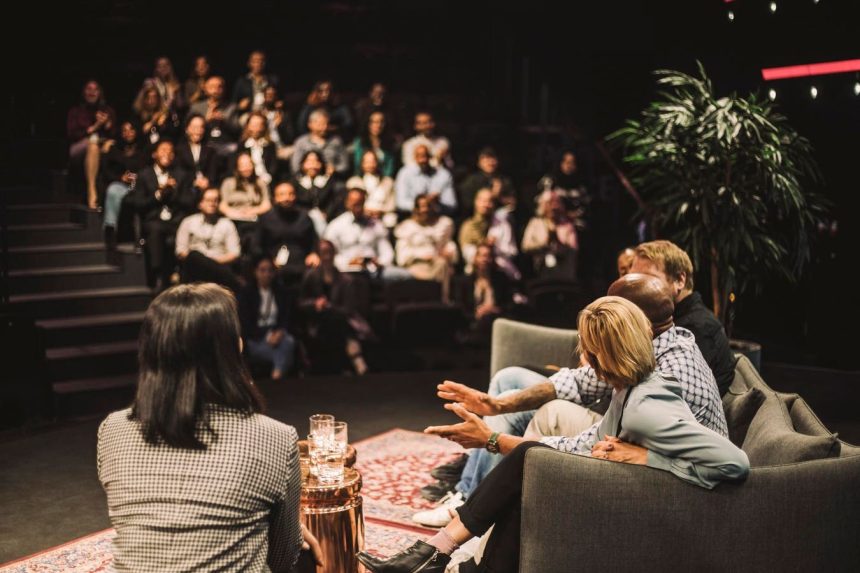Justin Boone is the founder and strategy director of Untitled Future, an experience agency focused on inspiring positive change.
There’s a reason why everything from music festivals to product launches—even global sporting events like the Olympics—exist; they’re compelling, galvanizing, informative and often incredibly entertaining. These kinds of events can meaningfully impact our collective cultural landscape. That’s why I always have been and will continue to be an advocate for live events in the world.
But for the increasing number of marketers and event professionals attempting to harness the power of events to grow business and support customers in the B2B world, I think it’s time to take a different approach. That annual user conference can be a whole lot more valuable for your customers and a much better business investment for your organization if you stop thinking about it as an event and start reimagining it as a part of a program—something that looks more to the overall journey and long-term community. Here are a few key differences between events and programs.
Events are about moments, programs are about journeys.
Events are intended to be focused engagements that can capture your full attention for a short period of time. But like a movie or even a good song, they’re often over just as quickly as they began. Sure, we use events to impart specific types of information, and that information can stick with us for quite some time after the fact, but events at best are catalysts for action, not drivers of long-lasting change.
The benefit of starting first with designing a program as opposed to focusing on a singular event is setting yourself up to design with change or more meaningful transformation in mind. Programs with well-articulated journeys are ultimately much more immersive for participants, often allowing participants to feel like they’re gaining that much more value from being involved. And when we focus on this type of approach, the events (or moments) that we incorporate into programs also become that much more meaningful and valuable to you, the brand and your participants.
Events help communities amass members, programs help communities flourish.
Like all types of relationships, the relationships that form between community members require consistent nurturing in order to thrive over time. When we commit ourselves to being part of a program, we’re committing ourselves to be part of the rest of the community that is engaged in that program. We’re all on that collective journey together, and therefore, we’re all much more inclined to support each other on that journey, helping to cultivate stronger relationships between individual members of that community.
Events are great moments to bring new members into these communities, but it is through the programs that these events become just one small part of how we keep these members engaged. By creating programs, you can invite members to explore and bring values to the table that are personal to them and to the rest of the community. That’s a big part of building community in the first place—identifying ways in which we can all contribute value and receive value from others.
Events are about operations, programs are about strategy.
When we start by designing the program, we start with that critical part of community development that I mentioned above. We build an environment where our members can start to see their roles and begin to play an active part in providing us valuable feedback to develop better experiences that are more supportive to their needs This becomes the foundation of your program strategy.
When you better understand the needs of your community, you better understand how to design the right experience for them. And you also know what role they’re willing to play in that experience. That community then becomes your momentum driver. They help you design the experience, carry it out and even bring back those who have fallen through the cracks to find their way back to solid footing.
Events deliver lessons, programs support learning.
Events are a great place to go for quick lessons, best practices and insights. When I work with clients to write content for the stage at events, I focus a lot on defining and articulating key takeaways, always asking what can any attendee walk away with and start using today? That is always incredibly valuable information to share, but it has its limits in terms of what it offers in the long run.
Well-designed programs, with more structure and an eye toward the future, can offer a road map for transformative learning, which opens the door to wildly more valuable long-term outcomes. We can support organizational transformation and growth, help support productivity and innovation, cultivate leadership skills, and shift motivations and behavioral mindsets. All of this enables your brand to embody the role of the strategic partner you often wish you could be for your customers rather than just paying lip service to the idea.
Start the process of shifting from an event strategy to a program strategy.
So my last word of advice on the subject would be to recognize that this isn’t an overnight shift you can make in your process. You’re not going to suddenly be able to hit reset on your event strategy and replace it with a program strategy. And you’re going to need to get a lot more support from other teams within your organization to embark on this initiative in the first place. All of this starts with just managing your own expectations and being comfortable with putting a realistic timeline on the table.
Start small. Take a look at your business objectives and how you use events today. Then start to ask the customers and attendees who have attended your events in the past what value they’re trying to get out of those experiences. Ask how you’ve delivered it and where you’ve fallen short. Then start to map those desired value outcomes against your business objectives (your desired business outcomes) to see how you can better address both in the future. That’s the start of building a new program strategy to replace your current event strategy.
Forbes Business Council is the foremost growth and networking organization for business owners and leaders. Do I qualify?
Read the full article here





